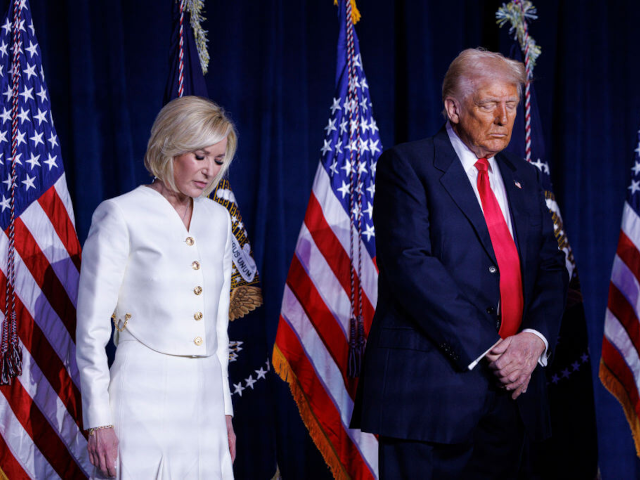-

-
-
Loading

Loading


President Donald Trump’s decision to appoint Paula White, a controversial televangelist and longtime spiritual adviser, as head of the reestablished White House faith office has ignited widespread criticism, especially from within the Christian community. White, 57, is known for her association with the prosperity gospel movement, which teaches that faith can lead to material wealth and personal well-being. This belief has led many Orthodox Christian leaders to label her a "heretic." Her appointment has prompted sharp reactions across social media, with critics questioning her qualifications and theological stance. On Thursday, Trump announced the new task force during his speech at the National Prayer Breakfast, where he also revealed plans for a presidential commission on religious liberty. As part of his agenda to protect religious freedom, he pledged to combat "anti-Christian" discrimination within the federal government and ensure the protection of Christian rights nationwide. President Trump’s spiritual advisor, false Bible teacher, Paula White pic.twitter.com/QEytsktvBr — Terri Green (@TerriGreenUSA) February 6, 2025 However, the focus of the backlash has remained squarely on White’s leadership role. Critics argue that White’s controversial teachings, such as her endorsement of the prosperity gospel and her adoption of Hebrew rituals in her ministry, are at odds with mainstream Christian beliefs. One social media user argued, “Paula White is a heretic who pedals the prosperity gospel,” while others contended that her position as a female pastor contradicts Biblical teachings about church leadership. This is the worst decision President Trump has made since taking office… Paula White is a heretic, who pedals the prosperity gospel. Plus, women should not be pastors according to The Bible. (Clip via https://t.co/CELeRLbIJA) https://t.co/f0Vrsd2sk7 pic.twitter.com/7dkc7qHcDe — Jon Root (@JonnyRoot_) February 6, 2025 White has long been a central figure in Trump’s evangelical circle. In 2016, she chaired Trump’s evangelical advisory board and delivered the invocation at his inauguration in 2017. Despite the criticism, White has defended her beliefs, denying accusations of heresy. In a 2018 CNN interview, she stated that claims about her life and ministry were “misleading” and “inaccurate,” asserting that the allegations against her were false. We really should pray for @realDonaldTrump that God would surround him with someone other than Paula White and her crowd. While everyone cheers this morning about the executive order which is a good thing, I still can’t help to point out that Paula White literally teaches… — Austin Fleming (@MrAustinFleming) February 6, 2025 While Trump has repeatedly emphasized his commitment to faith-based initiatives, many evangelical critics are raising concerns about White’s suitability for such a high-profile role. Her role in leading the White House faith office is seen by some as an extension of Trump’s effort to solidify his support among evangelical voters, a crucial demographic for his political base. The announcement has fueled a broader debate within American Christianity about the direction of faith-based political initiatives. Critics argue that Trump’s endorsement of White—who has been criticized for her unorthodox teachings—may deepen divisions within the Christian community and raise questions about the administration’s priorities.
if you want to get more information about this news then click on below link
More Detail